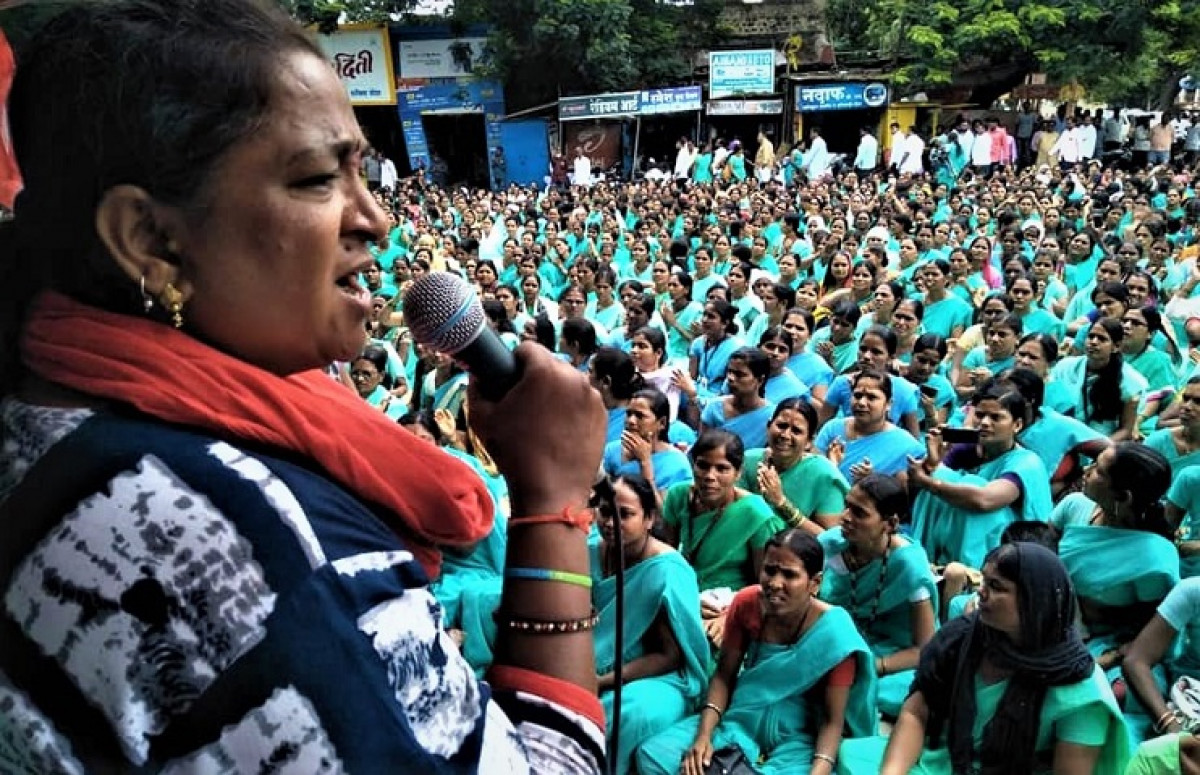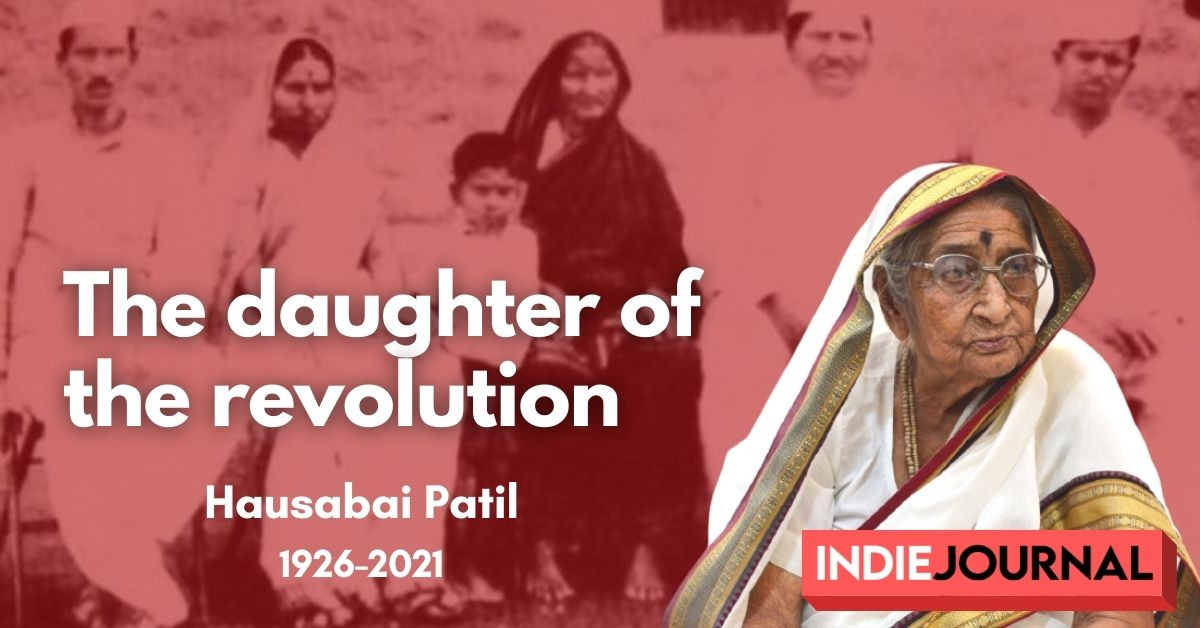India
ASHA workers brave rains as strike enters eighth day
No 'Hope' yet for 'ASHA'

ASHA (Accredited Social Health Activists) workers have constantly been on strikes across the state from time and again. This time around, in multiple districts such as Solapur and Kolhapur, it is the 8th consecutive day of their protest to demand a hike in their meagre remuneration. Yesterday, on 9th September, ASHA workers wore black sarees to remonstrate against the inactiveness of the government. Braving heavy rains and government apathy, the protest continues.
The demand for hike in their remuneration along other demands has actually been going on for many years. This year, on June 4, a massive protest had taken place at Azad Maidan, Mumbai. Even after the assurance of solving the issues of the ASHA Workers, no action has so far been taken by the government of Maharashtra. Subsequently, a few months ago, ASHA Workers, giving a gentle reminder, agitated before the District Councils on 19th of July 2019. And the latest march in this regard was noticed at Azad Maidan on 20th August 2019.
Sandhya Jadhav, a supervisor of ASHA workers from Kolhapur says, “Generally, ASHA workers are involved in vaccination programs, a listing of beneficiaries, calling them for the vaccination, surveys, and emergency medical coordination. Because of the pro-activeness of the ASHA workers, the Health policies are being run in rural areas in a proper manner. National Rural Health Mission’s (NRHM) most significant objectives are to reduce infant mortality rate and maternal mortality rate. These goals are achieved with the help of ASHA workers only. It could not have been possible without them. In short, ASHA is the spinal cord of the rural health.”

However, this time, from the last few months, ASHA Workers are asking for dignified salaries. In Maharashtra, ASHA Workers are responsible for implementing 73 health programs. From January, they are being told that the health officials would send a proposal to the health department on increasing the pay.
Jadhav added, “We are working for the people’s health but we ourselves are not getting the government health benefits like insurance and free medical measures. Those working on the ground and those who are taking the credits are absolutely different. If we get the support from the administration and the government then only we can go ahead.”
Raani Sutar, an ASHA worker from Karmala Tehsil of Solapur district, showed sheer disappointment towards the government's approach in solving their problems. She said, “We are protesting for our constitutional rights for many years now. No one has looked into the matter with the intention to implement. From the beginning of this year, we are taking follow-ups, we are putting our demands continuously. This time, we are not going back to our work till all our demands would turn in a Government Resolution.”
This whole week, ASHA workers have stood their ground. Around 1,500 ASHA Workers from all over the Solapur district are on strike outside the District Council office. Sutar added, “We cannot run our families with this inadequate amount. It’s not at all in proportion with the expenses, it has to meet. We will not give up on the demands until it gets fulfilled at its fullest. No rain or any adverse conditions can stop us.”
ASHA workers get two thousand five hundred rupees for the month where they work for more than six hours a day regularly, putting emergency hours aside. Earlier, they used to get permanent employee status after completing a three year contractual period successfully. Now, to understand the ordeal, even after ten years of service, the supervisors too are working on eight thousand rupees salary.
Kiran Moghe, of All India Democratic Women’s Association (AIDWA) says, “ASHA workers’ demands are totally reasonable. The government wants to extract free labour from women and implement its health programs. The ASHA's have made a significant contribution in improving immunization and maternal and child health and helped ordinary citizens to access other health services. Instead of stretching the issue, the government should accede to their demands.”
She further added, “In any case, the Maharashtra government had given them an earlier assurance about giving them a regular wage, although ridiculous compared to their labor. I'd say if the demands are not fulfilled, the people will suffer and the ruling parties will ultimately suffer politically in the forthcoming state assembly elections.”
The word ‘ASHA’ is an acronym and stands for Accredited Social Health Activists who a trained female community health activist. The ASHAs are selected from their village itself and are accountable to the work given to them. They are also trained to work as an interface between the community and the public health system.
It is expected that an ASHA Worker must be a resident woman of the village who is married/ widowed/ divorced, preferably in the age group of 25 to 45 years. She should be an educated woman with due preference in selection to those who are well qualified up to 10 standards. Basically, the programme was launched in 2005, the ASHA programme is meant to strengthen the delivery of government healthcare services in rural areas and foster community engagement and ownership of the health program.
Vimal Kamble, another ASHA worker from Padali (Budruk), Kolhapur says, “We have been protesting for weeks now. But when we watch Television, when we read newspapers we do not find anything, any mention about our protest. Nobody knows about it. Health centre officials are calling us, asking for the surveys and other works. They are yet to acknowledge that we are on the strike. We are feeling like we are not part of this society.”





